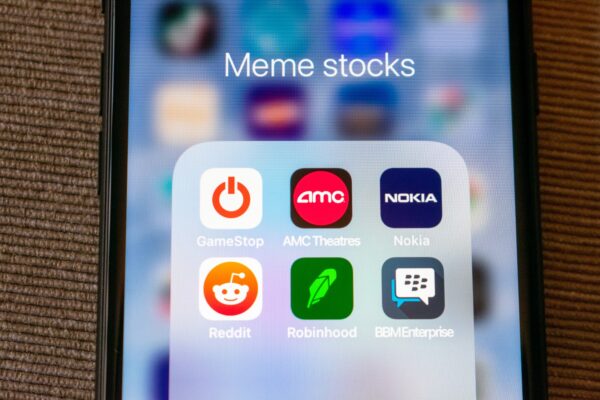By now, most people know about the meme stock debacle. But it’s more than meets the eye. When Redditors blew up GameStop and AMC stock, what they were really doing was revealing tremendous inequality within the current stock market — and a stock market inherently divorced from real economic values.
Redditors and GameStop: The Big Short
Let’s go over what happened. On Reddit, retail traders (independent home investors) frequently post something called “DD.” Due Diligence. That’s information about stocks and investments; the research they’ve done into determining whether something is a “good buy.”
Okay, so, a Redditor posts that they’ve noticed that GameStop is being shorted into the ground. Someone is betting on GameStop to fail, way beyond what seems to be legitimate. And they decide it’s a good idea to be on the other side of that trade; they think GameStop is way undervalued.
What happens next is the chaos. Everyone agrees, so everyone buys. GameStop stock starts to soar. This launches a massive squeeze. A squeeze occurs when someone has shorted a stock (hoping it will go down in value), because that means they still need to purchase that stock to sell it at the lower value. So the value keeps going up and up because the short sellers don’t want to take a loss and buy, but they eventually have to make that purchase to cover their sales.
But in this pandemonium, it’s large companies like Citadel losing money. And that’s where the disruption occurs.
Robinhood’s Fall from Grace
A few years ago, Robinhood made waves by making trading easy. It was able to disrupt the day trading market by letting anyone trade at any time. Retail traders were able to start trading stocks and making money with technology that could keep up with the giants.
But there were still some caveats. The Robinhood App was the only way a lot of investors could access their trades and money and many of them weren’t interested in holding traditional investment accounts.
When GameStop started ballooning, Robinhood started disabling the ability to buy and sell GME stock. It moved similarly on AMC. The idea was that Robinhood was trying to reduce volatility. But it all led to an inherent flaw in the system.
Everyone’s Jim Cramer
When someone on television says a stock is a “buy,” it can be enough to influence the stock to go up. But that’s legal. Offering an opinion on a stock is legal. Colluding to boost a stock price is not legal. But you can see where the lines can be gray.
Online, everyone can give their opinion about a stock. The GME and AMC squeezes had people making millions overnight. They increased their value not by thousands but by tens of thousands. This led to dozens of copycat pump and dump schemes focused on stocks like WISH.
The question is simple: what happens when internet trends can so vastly influence the stock market?
But retail traders aren’t doing anything that hedge funds weren’t already doing. The reason the DD on GameStop first appeared was because a specific hedge fund, Citadel, had been shorting companies into nonexistence. This creates an unbalanced effect in which hedge funds can manipulate the market but the retail trader cannot.
The Fallout
Most GME and AMC investors are still waiting for their big payoff. While both stocks rose tremendously, they believed they should rise even higher because the shorts still haven’t been covered. However, a variety of financial systems (such as borrowing shares to cover shorted shares) have largely mitigated what they call MOASS (the Mother of all Short Squeezes).
Robinhood and Citadel are being accused of manipulating the market. The mobile app is accused of engaging and disengaging trades to manipulate price. Citadel is accused of relentlessly shorting stocks to drive companies out of the market and of not covering shorts that it should have covered. But whether anything will come of this is largely unclear.
What is evident is that retail traders now have a very significant hand in the market and that they aren’t going away. If the market does not become more transparent or at least more accessible, it’s difficult to see how it can remain stable.
As for the retail traders themselves, many are chasing the next squeeze. While some continue to invest in AMC and GME, the subreddits like WallStreetBets are full of other DDs. Many aren’t investing for long term strategies but rather short term gambles, which further complicates implications for the market — and makes it a lot more interesting.

